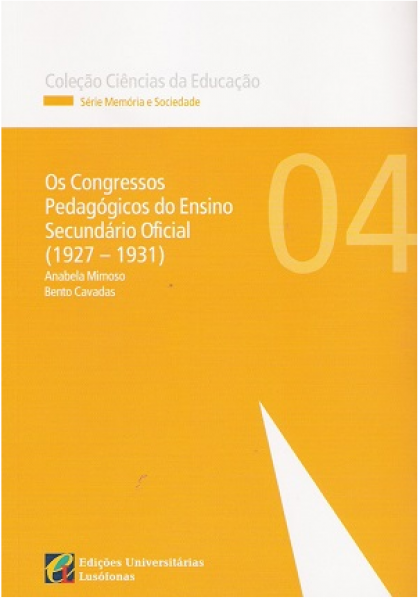Série Memória e Sociedade
Os Congressos Pedagógicos do Ensino Secundário Oficial (1927-1931)

- Anabela Mimoso & Bento Cavadas
- Authors, Editors
- 2013
- Year of edition
- 978-989-851-255-0
- ISBN
Synopsis – [The Pedagogical Congresses of Official Secondary Education (1927-1931)]. As António Nóvoa has well shown us, teacher associationism historically represented one of the most important steps towards the professionalization of teaching. This associationism, of which congresses are an example, along with the activity of the associations themselves and pedagogical press, allowed for the creation of a favorable intellectual and affective context for the socialization of teachers in the beliefs and values specific to the profession, thus contributing to the diffusion of a sense of belonging to the same symbolic community. The teacher association movement has its roots in the 19th century. It was in this century that the Revista dos Liceus (1891-1896), directed by Borges Grainha, was published, the first to address the specific interests of secondary education teachers. However, it was in the 20th century that the first representative organization of this sector emerged: the Association of Official Secondary Education (1904).
The pedagogical congresses held in the transition from the 1920s to the 1930s, studied by Anabela Mimoso and Bento Cavadas, appear, in some way, and paradoxical as it may seem, as a high point in the associative journey and, simultaneously, as its point of retreat. The political context gradually becomes more unfavorable as the institutionalization of the Estado Novo (New State) becomes increasingly effective. It is in these turbulent times that teachers discuss topics such as the role of secondary education, teacher training, textbooks, inspection, career progression, among others, analyzed in detail by the authors, who also seek to reflect on the geography of the congresses, their agenda, the identity of the participants, or the weight of female representation.
This is an essential work, from now on, to understand a moment that has entered the mythology of teacher professionalization.


